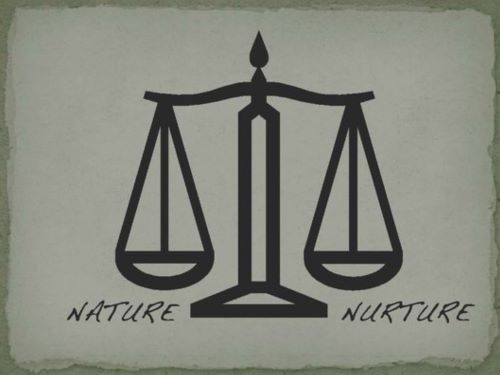
The nature vs. nurture debate has been in existence for a long time. This debate is one of the oldest issues in psychology, and over the years, it has been discussed by psychologists and biologists. The debate revolves around human nature and tries to answer what may influence children more; nature or their environment.
This debate is essential in education, and college students majoring in psychology will have come across it at least once. If you are a college student and asked to write essays on nature vs. nurture, this article is for you. To better understand what this debate entails, you must know the nature and nurture definition.
Nature means the innate qualities an individual possesses. It is in your genes and will prevail irrespective of your environment. Nurture is the experiences and qualities individuals learn from their environment.
History of Debate
The nature vs. nurture debate has been in existence for a long time, since 1869. The phrase “Nature vs. Nurture” was first composed by an English polymath named Francis Galton. This debate was immediately controversial, and some people supported nature with the argument that genes and DNA will determine who we will be and our personality.
Others argued that nurture is the major determinant of how we will turn out because the mind is born fresh, and we learn through experiences and interactions from the world around us. In comparison, other people believe that nature and nurture play a critical role in our turnout.
Through different periods, the controversies continued as different prominent scientists chose their sides. Plato favored nature, while Aristotle went for nurture.
Francis Galton’s research on this debate favors nature to nurture because his research shows how parents and grandparents contribute to the heredity of children.
Although Galton’s research favors nature, he believed evolution plays a huge role in determining the best physical and mental traits.
As a university psych student, you should know the origin of this debate if you are asked to write on it. You can use many essay samples, but knowing them personally will significantly help your understanding.
Similarities between Nature and Nurture Development
The most significant similarity between nature and nature is that they both play a huge role in the development of human beings. Both genetic makeup and the environment you grow up in will determine how you will turn out. One cannot exactly function without the other.
Differences between Nature and Nurture Development
When the relationship between the characteristics a child is born with and learned experiences is closely examined, the difference becomes evident. These differences are shown in activities like crying, eating, sleeping, socializing, and movements. All the components listed have both nature and nurture components.
Nature: Genetic Influences
Studies have shown that sleep patterns and 60% of a child’s temperament are set by their genetic makeup. Character traits like shyness, loudness, hyperactivity, and even the foods a child prefers are mainly because of their genes.
Nurture: Environmental Influences
Although most basic characteristics can be allocated to nature, the environment also plays a part in child development. For example, let’s take feeding; a child can learn to eat meals from other tribes that the parents do not eat.
Another example is that kids with bad sleeping patterns can benefit from their guardians setting a bedtime pattern to help induce sleep.
Whether a baby is easy to soothe when sobbing is determined by genetics, but activities like swaddling, rocking, and petting can help remedy this fixed hereditary predisposition.
How Nature and Nurture Interact
As the world is advancing, it is seen that nature and nurture don’t work against each other; instead, they work together. Every human is born with some specific traits inherited from their parents, but beyond this, there is a strong interaction between nature and nurture. This is because experiences learned from the environment help determine how certain traits will be expressed. And genetics helped to determine how we interact with our environment too. The reciprocated interaction between nature and nurture helps mold us into what we will become.
Philosophical Consideration of Nature vs. Nurture Debate
There is no single philosophical consideration on this debate because it is too controversial. But over the last 40 years, it has been agreed that both sides are paramount to human development.
The great philosophers Plato and Aristotle both had clashing opinions.
Plato believed knowledge and behavior were due to innate characteristics and that all knowledge is present at birth. He didn’t believe that the environment taught any new thing.
On the other hand, Aristotle was pro-nurture, believing that humans acquire all their knowledge through experience.
But today, philosophers have come to terms with the fact that the interaction of nature and nurture drives development.
Conclusion
The reality is that nature is a tad bit more of a driving force in development than nurture, but that is not to say that nurture is less important. Both are critical to human development, and many researchers today are focused on seeing and showing how genetics modulate influences from the environment. And vice versa.







